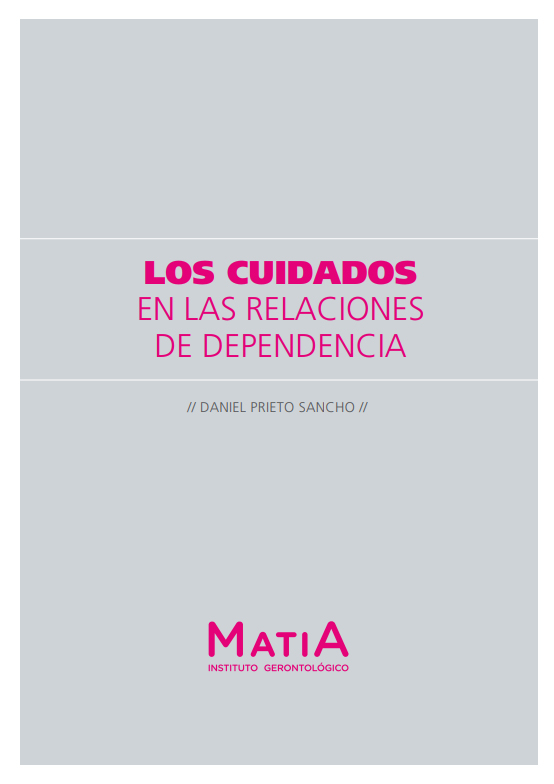Care in dependency relationships

Dependency and care represent two sides of the same coin. One and the other designate dimensions that we tend to link to archetypal and isolated characters (the "dependent person" and the "caregiver"). The one, however, syntactically claims the other and vice versa because both ultimately designate relational domains (one "cares for"; the other "depends on").
The experience of dependency affects a whole environment made up of one or more people with special needs and the rest of the people who provide them with help in a formal or informal way, living together in a given space. The need for help, therefore, refers to a relationship, and any kind of enquiry aimed at analyzing the conditions in which this occurs must be based on it.
To this end, the qualitative study Care in dependency relationships, carried out within the project "Caring as we would like to be cared for", sought to identify the way in which people involved in dependency relationships want to care for and be cared for, based on the testimonies collected in different discussion and triangular groups.
The present research arises in a context with a pre-existing institutional framework of rights, duties, budgets and infrastructures that try to work on the problems associated with the world of care from different approaches and pretensions. It is therefore pertinent to consider the origins of a demand that, in principle, aims to satisfy the need to understand how the people who make up care relationships value and experience their lives under these conditions: how dependency/care relationships are structured and how they are valued by those who live them.
